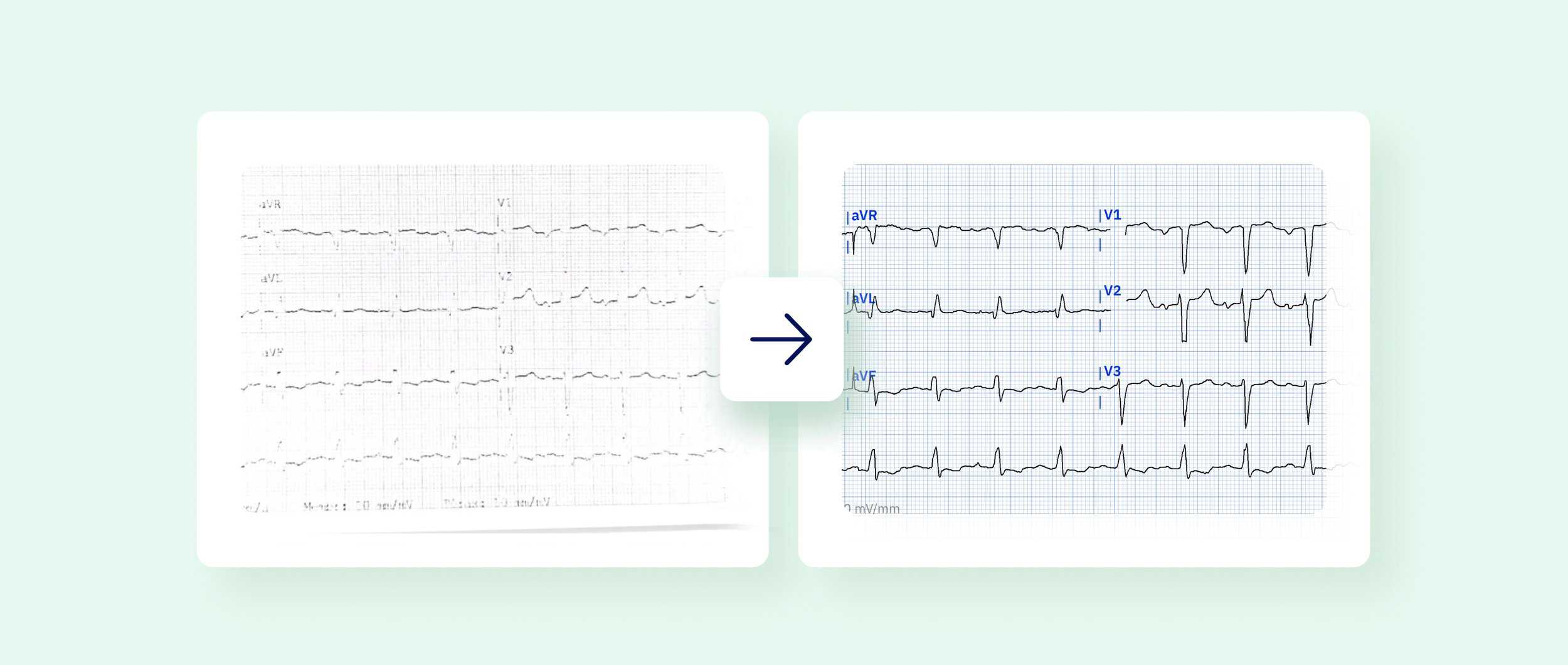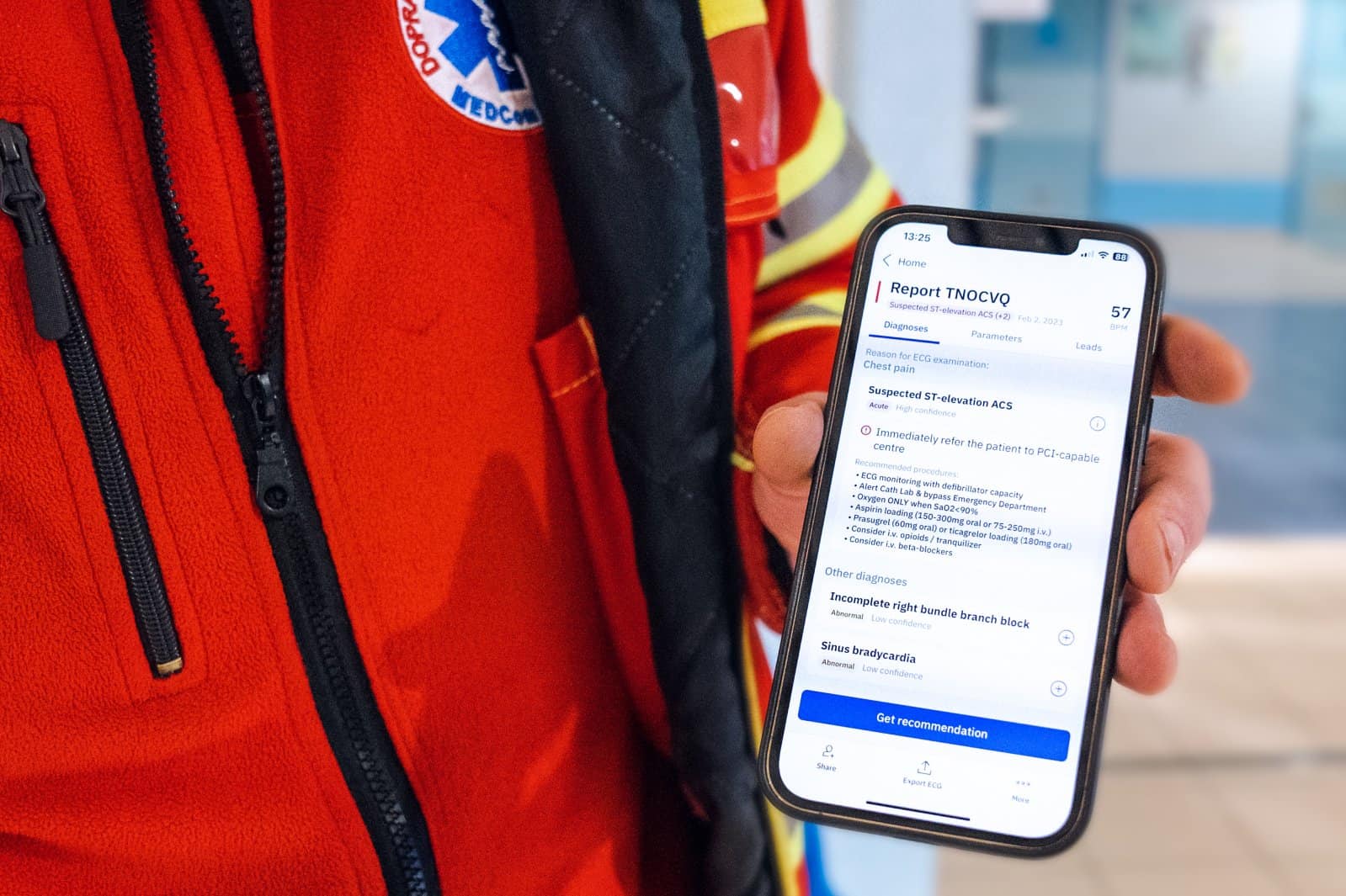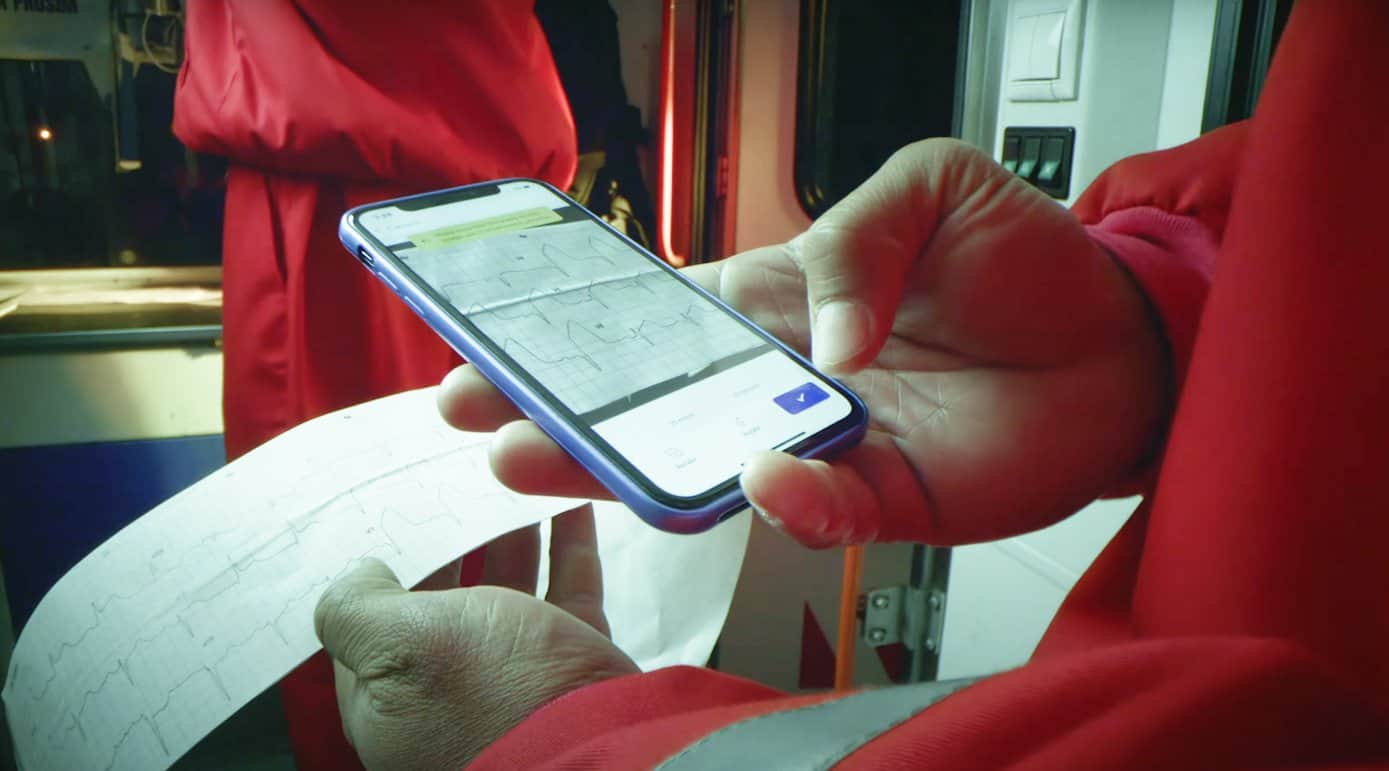Emergency medical professionals deal with many cardiac patients daily, many of them acute cases like heart attacks or heart failures. The accuracy and timeliness of ECG diagnostics in the ambulance, therefore, play a crucial role, both in terms of ambulance operations as well as patient outcomes.
We recently talked to Jason Winter, an emergency medical professional in the NHS Ambulance service, about the complex challenges that paramedics encounter when interpreting electrocardiograms (ECGs) and diagnosing patients with heart conditions in emergencies. Additionally, we explored the possibility of bridging the skills gap for emergency medical professionals in diagnosing patients with cardiovascular diseases.
Jason told us why he doesn’t rely on the automated ECG interpretation technology in the ECG machines and how the AI-powered ECG diagnostic tool by PMcardio helps him make more confident clinical decisions in diagnosing and managing acute cardiac patients.
Objective #1: Ensuring accurate ECG diagnosis in emergency vehicles
In diagnosing patients with cardiac problems, paramedics mostly rely on mobile ECG devices with ECG interpretation algorithms built into them. These allow ambulance staff to automate ECG interpretation to some degree, but the fact is that the ECG machines often provide an inaccurate diagnosis of a patient.
As Jason said: “Our ECG device on which we do a 12-lead ECG sometimes gets the patient’s diagnosis grossly wrong, especially the measurements, like the QT interval, for example, and I find out that PMcardio interprets ECGs much more precisely.”
In detecting ST-segment elevation myocardial infarction (STEMI), the automatic ECG interpretation technology shows relatively high inaccuracy. In a study published in 2022, a team of experts discovered that the diagnostic accuracy of auto-interpretation was 73.5%, whereas 26.5% were misinterpreted as non-acute myocardial infarctions.
Misdiagnosing a patient in an emergency vehicle can lead to inadequate triage, subsequent incorrect treatment, and in some cases, fatal outcomes. Some missed diagnoses can be due to the noise these ECG machines are susceptible to.
Jason says: “With our ECG machine, we often get interference and artefacts on the ECG. PMcardio filters all the artefacts and noise from ECG, like squiggly lines and bumps of lumps that shouldn’t be there. This gives us a much clearer picture, and we can be more sure that we don’t miss anything from the ECG.”

Objective #2: Bridging the skills gap of emergency medical staff in interpreting ECGs
Another critical issue in the ambulance service is the need for more training and expertise of ambulance staff in interpreting ECGs. “There’s not enough ECG training at universities”, says Jason. “Many junior staff members are not properly trained in ECG interpretation, so the PMcardio app is great for bridging these skills gaps. When I’m with my students, they find it very helpful to just scan an ECG with their phone and interpret it straight away because they usually tend to miss quite a lot of things.”

The lack of training can lead to misinterpretation of ECG results, which can seriously affect patient care and cause delays in delivering appropriate treatment. When it comes to myocardial infarctions – a diagnosis that emergency medical staff is often called to – timely and accurate diagnosis is paramount.
A study shows that if the emergency department correctly diagnoses the AMI (Acute Myocardial Infarction) and activates the catheterization laboratory while the patient is en route to the hospital, it can reduce door-to-balloon time by 15.4 minutes.
“If someone has a heart attack, they must be taken to a cath lab as soon as possible. However, paramedics are often unsure whether what they’re seeing is actually a heart attack. There are lots of things on the ECG that can mimic MI. The staff usually transmits the patient’s data to the coronary care unit and lets the cardiologist look at the ECG and decide whether to send the patient to the cath lab,” says Jason.
“PMcardio is a great help here. It gives the emergency staff a prompt that this patient has, in fact, an acute coronary syndrome, and the staff can immediately inform the hospital.”
Read also: How is AI transforming ECG interpretation?
Objective #3: Saving time by making quick clinical decisions
One of the primary issues facing the ambulance service is the sheer volume of calls they receive daily. According to recent reports, the service is experiencing record levels of demand, with some areas seeing a 30% increase in calls compared to the previous year. This increase in demand is putting a significant strain on the service, which is struggling to keep up with the number of patients needing assistance.
Another challenge facing the ambulance service is staffing shortages. Data show that ambulance calls have risen by ten times more than the number of ambulance workers. This shortage is leading to longer response times, as there simply aren’t enough staff to attend to all of the calls that are coming in.
In Jason’s view, innovative technology can help to some extent.
With the massive delays, paramedics must work even quicker and more efficiently than ever. In Jason’s opinion, having a tool like PMcardio in their pockets can be like an extra staff member that helps the emergency staff make faster clinical decisions.

“PMcardio is more accurate in picking up STEMI than our ECG machine. Paramedics can save valuable time for the patient if they pick up on these subtle changes in the ECG, recognizing that the patient has a heart attack. It’s just less time delay on the scene, and the team can inform the hospital to prepare a cath lab sooner.”
Jason Winter
Over to you
The NHS ambulance service in the UK is facing a number of challenges that are impacting its ability to provide timely and effective care to patients. These challenges range from increased demand and staffing shortages to insufficient training of the emergency medical staff to interpret ECGs and accurately diagnose patients with cardiovascular problems.
We spoke to Jason Winter from the NHS Ambulance service about how he tackles these challenges with PMcardio. PMcardio, an AI-powered ECG analytics tool, helps him interpret ECGs and diagnose patients more confidently.
“With PMcardio, you’ve got a cardiologist in your pocket in the form of an artificial intelligence device that can interpret ECGs accurately, more so than most ECG machines can do on the algorithms. I am absolutely amazed by its abilities.”
Jason Winter
















